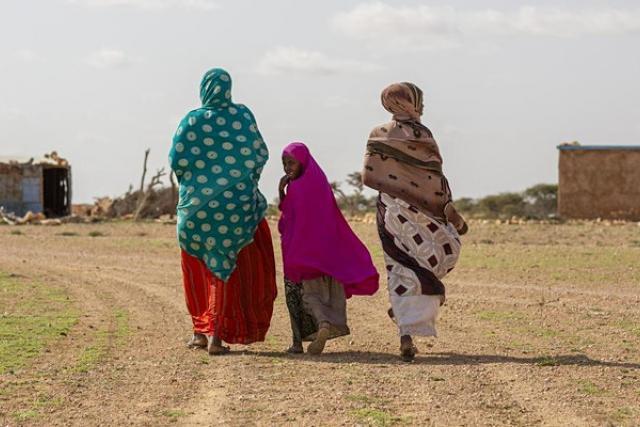Practical Tools for Adapting Activities in Complex Environments: Insights from the Sahel

Watch Recording View Presentation
This event was a session at the Food Security COVID-19 Learning Event.
For most activities funded by the USAID Bureau for Humanitarian Assistance, operating environments are more complex and dynamic than ever, especially over the last year and a half as the world struggles to cope with the initial shock and ongoing stress of COVID-19 in each country. At the same time, many countries and zones of intervention that were previously “long-term development focused” are now experiencing a complex web of protracted crises—requiring them to pause, reflect, and adapt to growing insecurity, COVID-19/pandemics, and climate change/environmental shocks and stresses. Because of these challenges, there are a growing number of strategies being discussed, tested and available for adapting activities in response. During this session, participants will gain an understanding of the scope of complexities impacting food security activities, learn about potential strategies, and hear real-life examples of the pitfalls and successes of programmatic adaptations in Niger and Burkina Faso, specifically of the last year and half in which COVID-19 has put added stress on nations and responders. Topics will touch on protracted crises; early warning-recovery-resilience; “the triple nexus”; violence, insecurity by non-state actors; climate and environmental shocks and stresses; COVID-19/pandemics; resilience-informed collaboration, learning and adaptation (RCLA).
By the end of this session, attendees will have:
-
Understood some of the complexities surrounding BHA-funded food security activities and the changing environment where they operate, including COVID-19
-
Become familiar with strategies for assessing when activities need to adapt to changes in their operating environment
-
Shared and learned from other participants’ experiences and strategies for adapting activities, including the menu of options available for responding to dynamic situations
Facilitators:
Maggie Janes-Lucas, Chief of Party, Sahel Collaboration and Communication Project (SCC)
Maggie Janes-Lucas is the Sahel Collaboration and Communication Project (SCC) Chief of Party, and oversees the five-year program and multi-disciplinary team to address the challenges of collaboration, learning and communication among development and humanitarian actors across Niger and Burkina Faso. She brings 15 years of experience managing and mentoring diverse, multi-cultural teams for programmatic success and is currently based in Niamey, Niger since 2017 with Mercy Corps. Maggie has worked for various international non-governmental organizations, the USAID, UNICEF, and US-based NYC hospitals in consortium with two universities (NYU and Columbia University). She is a regular guest lecturer at the African Development University (Niamey), Wayne State University, Texas A&M University and Portland State University. Maggie holds a Master of Public Health from Tulane University’s School of Public Health and Tropical Medicine and a Bachelor in International Relations from James Madison College at Michigan State University. She served as a community health extension volunteer with the U.S. Peace Corps in Cameroon and is fluent in French. Maggie lives in Niamey, Niger with her six-year-old son.
Halimatou Zika Sombeizé, Partnership and Government Liaison, Sahel Collaboration and Communication Project (SCC)
Ms. Halimatou Zika Sombeizé is the Partnership and Government Liaison for the Sahel Collaboration and Communication (SCC) project in Niger. She is an environmental engineer and climate change specialist by training, and a former Francophone youth parliamentarian. She is also a member of several networks of young women leaders in Africa. She coordinated for six years an association working on the issues of leadership, education, development and empowerment of girls and women in Niger. Ms. Halimatou Zika Sombeize is a mother and has been working with Mercy Corps on SCC since January 2021. She is interested in governance, gender and resilience.
Lawali Abdoulaye Hassane, Resilience Advisor, Sahel Collaboration and Communication Project (SCC)
Lawali Abdoulaye Hassane is a project management engineer and geographer with more than 10 years of professional experience in the Sahelian context (Niger and Burkina Faso) in the areas of resilient development and humanitarian responses. He has managed several projects with different modes of intervention such as (i) household resilience and economic growth, (ii) livelihood recovery, (iii) disaster preparedness and management, (iv) natural resource management and development planning, (v) resilience and social cohesion, (vi) capacity building of local organizations (NGOs, farmers and pastoralists organizations,) (vii) agricultural value chains and (viii) contribution to the preparation of documents (country resilience strategy, sector strategies, youth and women's economic interest groups). He is a father and has been working with Mercy Corps on the SCC project covering Niger and Burkina Faso since July 2020.